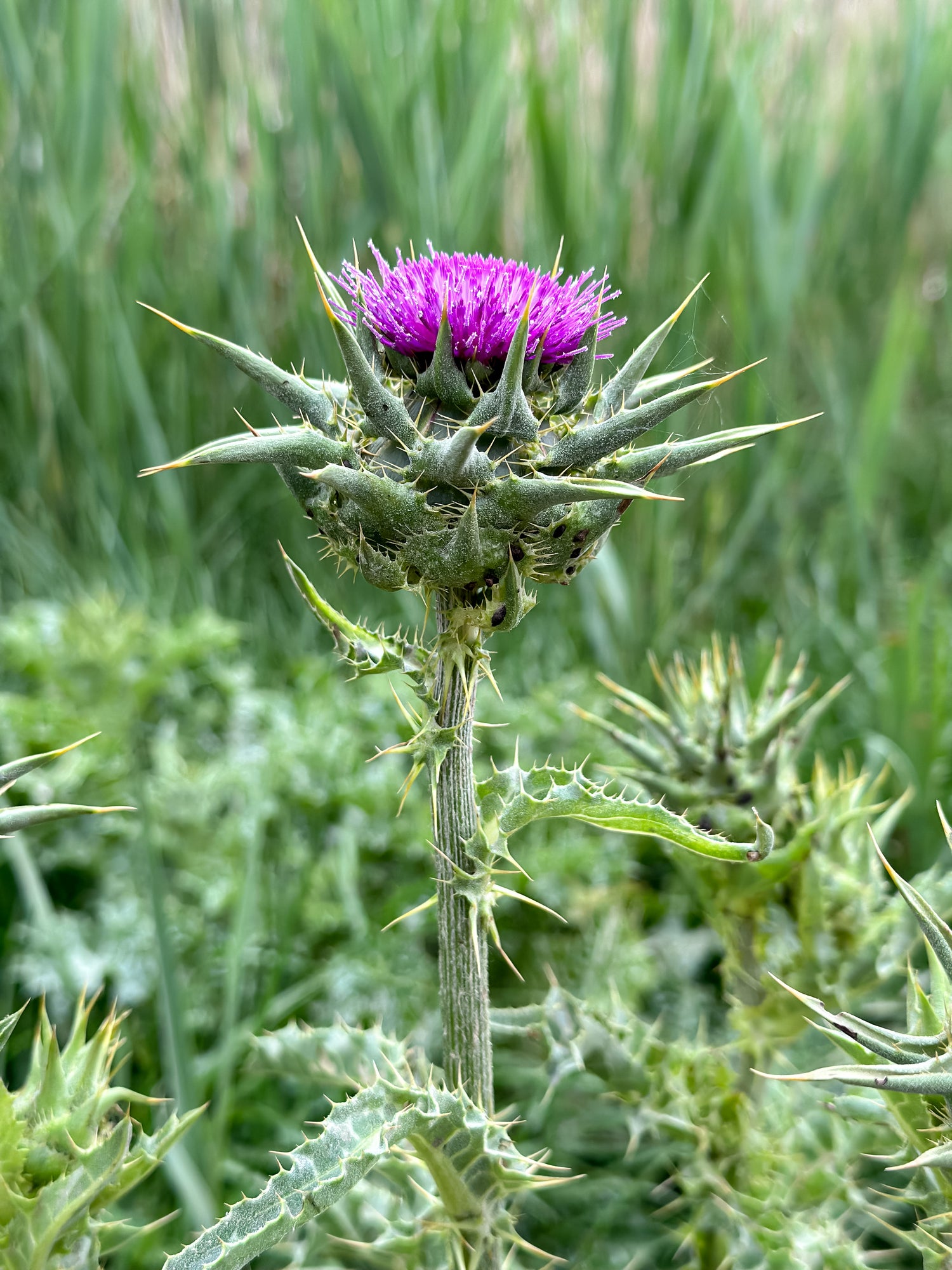
Milk Thistle
Herbal Action: Milk thistle, scientifically known as Silybum marianum, has been used for centuries as an herbal remedy, particularly for promoting liver health and detoxification. Its primary active component, silymarin, is a flavonoid complex that possesses antioxidant, anti-inflammatory, and regenerative properties.
Milk thistle has a rich history that dates back to ancient Greece, where it was regarded for its health benefits. Traditionally, it has been used to treat liver ailments and gallbladder disorders, and even to ease symptoms of poisoning. The name "milk thistle" comes from the white milky sap that is found in its leaves and is often associated with the plant’s healing properties.
Medical Research/Uses:
Detoxification Support
The liver plays a crucial role in detoxifying harmful substances from the body, making it essential to maintain its health. Milk thistle is often praised for its potential to enhance the liver’s detoxification process. Silymarin has been shown to encourage the production of glutathione, a powerful antioxidant that facilitates the elimination of toxins.
Protection Against Liver Damage
Research indicates that milk thistle protects the liver from damage caused by toxins, alcohol, and certain medications. Studies have shown that silymarin may help to regenerate liver cells and improve overall liver function. For individuals at risk of liver disease or those exposed to hepatotoxic substances, incorporating milk thistle into their regimen may provide additional protective benefits.
Supporting Liver Conditions
Milk thistle has been studied for its potential effectiveness in managing various liver conditions, such as fatty liver disease, hepatitis, and cirrhosis. Clinical trials show that silymarin supplementation can improve liver function parameters and promote better health outcomes in patients with these conditions
